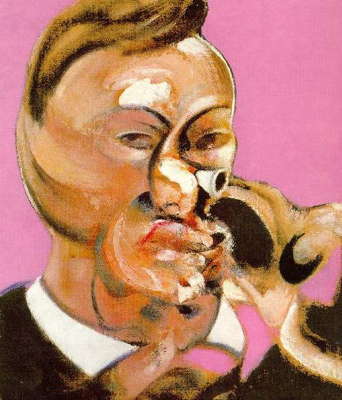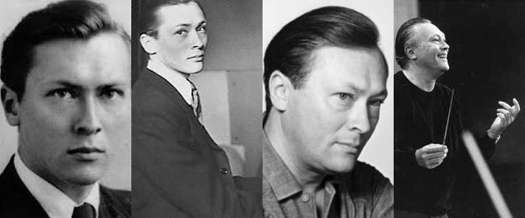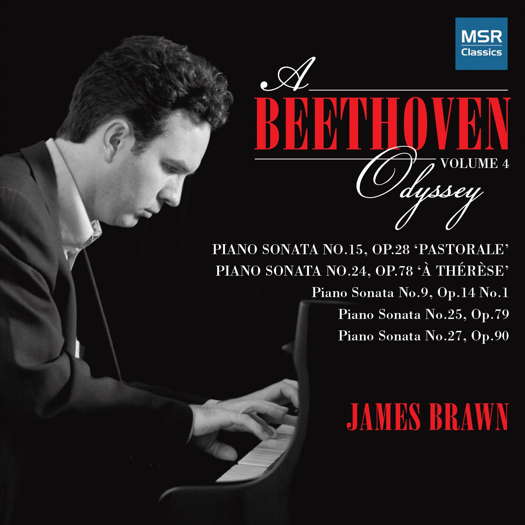A Constant, Authentic Genius

RODERIC DUNNETT pays tribute to composer Gerard Schurmann on the centenary of his birth
The first time I encountered Gerard Schurmann's music - and him - was at a Three Choirs Festival in Gloucester, in 1989. The late John Sanders, successor to Elgar's friend Herbert Sumsion - 'What was formerly an assumption is now a certainty' - as that year's Festival Director had commissioned and premiered Schurmann's staggeringly beautiful opera-cantata Piers Plowman nine years earlier. Hugely impressed by this vivid and inspired setting of the religious and allegorical, fourteenth century prose work - a sweeping vision of the towns and countryside espied from the Malvern Hills - by William Langland, Sanders had chosen to revive it.
Vivid and inspired Schurmann's musical masterpiece proved, too. This was in fact only my second event/commission for The Times (and several other newspapers too). My first was The St Magnus Festival in Orkney, where I went (actually with seven commissions, including five national newspapers), not least as I was lucky enough to know its founder Peter Maxwell Davies well - and continued to do so for the rest of his life until leukaemia claimed him in 2016.
Why else the mention of Davies? Partly because he, and Harrison Birtwistle, were perceived to succeed Britten and Tippett as Britain's two greatest composers.
But mainly for this reason. Both were celebrated and lionised, and rightly so. But amid many unduly lesser-known in England - Sandy Goehr, John Casken, Robert Saxton - I would place Gerard Schurmann and his marvellous output in the same category as those two. He should certainly be as known - and admired and respected - as nowadays, say, Judith Weir and James MacMillan.

Gerard Schurmann
Known for his film work - he loved writing for horror movies, and what amazing skill - I'd say artistry - for the sinister Gerard had! (and it brought in the money) - it was his classical music - there's just as much of it, almost all superb or stupendous - which, like those other geniuses (genii?) Erich Korngold or the wonderful (and productive) Miklós (Nicholas) Rózsa - he viewed as most important, and took greatest pleasure in.
If Gerard was a genius on celluloid, he was even more a genius in his classical output. Talking of horror, the second piece of Schurmann's I heard was where the two genres fused together. This was Six Studies of Francis Bacon, a wildly and brilliant Expressionist work to match, marvellously, the grotesquerie of the painter himself (1909-92), whose face and eyes were as contorted as his canvases. 'Brutality' was a word Bacon used of his searing brushstrokes - which sometimes looked like a cross between a self-porait and a hanging slit-open slaughter-house pig.
If one wants a classic example of Schurmann's ingenuity, or if one seeks an ideal or horrific introduction to his classical compositions, and to his magnificent command of structure, evident in so much of his alluring output, this virtually savage 1969 work would do perfectly. Bacon painted Schurmann, in his usual distorted and contorted style, the lower face crumbling apart, the same year.

Francis Bacon's 1969 portrait of Gerard Schurmann
There are so many Schurmann works to commend to a discerning wider audience. His concertos - piano, violin - are quite heavy in demeanour, but one of them, his cello concerto The Gardens of Exile, which I heard and reviewed at its Bournemouth Symphony Orchestra premiere (in Poole), is alluringly beautiful and tender.
What else? So much of joy, of sensation, to invite awe and the highest admiration. His stunning Variants for orchestra, the glorious and idiomatic orchestrated Slovak Folk Songs, the dramatic Attack and Variation, the flabbergasting, and the sensationally exquisite Chinese song-cycle Chuench'i.
Rather than go into more, I refer the reader to the fantastic collection of Schurmann's works recorded in several albums on Martin Anderson's daring and highly original label Toccata Classics, which does justice to, and often revives, many fine composers, both English and from abroad (notably Eastern Europe). There you will find as rich a collection of Schurmann's always superb, ever pioneering works: the gentle and lyrical, the in-your-face pounding, the always commandingly fashioned, the Expressionistic, the delicate.
His many chamber works very often probe the last. They alone are a feast of variety, reflecting Schurmann's excellence in so many genres: his pieces for, or including, flute (the Sonatina, for instance, and Moonbird), are typical examples. Some four memorable, inspired string quartets. His song-cycle The Double Heart. Or especially, Six Songs of William Blake.
What an amazing feast. Schurmann has revealed great, indeed dazzling, enviable mastery in every genre imaginable. Desirable? Most certainly. Attractive? Invariably. Inventive? Evrey time. A musical treat? You'll find out they're always. With Gerard Schurmann, one might indeed say, Rewarding? Of course. How could one not?
It was a privilege to meet and to know this gentle, modest man who now tops his centenary. I feel so lucky. And his works live on. In my memory; in my head; and now on record. Hurrah for one who deserves to be recognised as one of England's truly greatest musicians - conductor, too.

Four photos of Gerard Schurmann (1924-2020)
A constant, authentic genius.
Copyright © 19 January 2024
Roderic Dunnett,
Coventry UK





